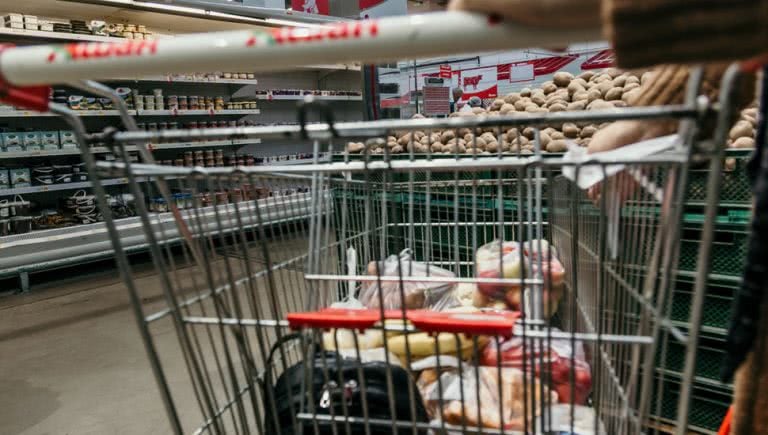Supermarket shelves are starting to empty again, but this time it’s due to COVID-related absences in truckies, not the fact that every man and his dog is trying to stockpile packs of toilet paper.
Logistics operators in the transport industry reported that somewhere between a third and half of their workforce were missing every day due to COVID-19 related illness or iso.
Supermarkets have claimed that the shortages occurring in some stores were not due to a case of panic buying, rather supply chain shortages and delays in deliveries.
Coles has currently reintroduced purchase limits, effective in all states except for Western Australia.
Customers can buy a maximum of two packets of mince, chicken breast, chicken thighs and sausages and a maximum of one rapid antigen test.
Woolies have had the purchase limits on their rapid antigen tests since last year. Customers are also limited to one pack per purchase.
Woolworths has said that it is currently having supply issues in New South Wales and Queensland for a number of products.
Nationally, poultry and some meat products may be in shorter supply at Woolies stores.
“While we are experiencing some delays with stock deliveries to our stores due to COVID-19 impacts across the supply chain, deliveries continue to arrive daily,” a spokesperson told the ABC.
Coles has said they will continue to monitor the products that are running low in stock and have implored customers to only buy what they need.
Aldi has said that the ongoing COVID-19 situation was putting pressure on its business operations and it will “continue to do its best to minimise any disruption to our customers.
National secretary Michael Kaine said the federal government has failed in giving transport workers priority for rapid antigen tests, as they are Australia’s most mobile workforce.
“We have a completely predictable scenario where drivers are delivering rapid tests to be sold on the shelves of supermarkets and pharmacies — but they, like most Australians, can’t access them themselves,” he said.
The wait time for truckies getting their results from a PCR test means that less people are on the roads being able to make deliveries to supermarket giants and other smaller retailers, and that’s not including those that already have to isolate due to contracting the virus.
If you (like most of the nation) are looking for rapid antigen tests and are struggling to find any, we have found a site that gives you updates on stock in stores nationwide.

































